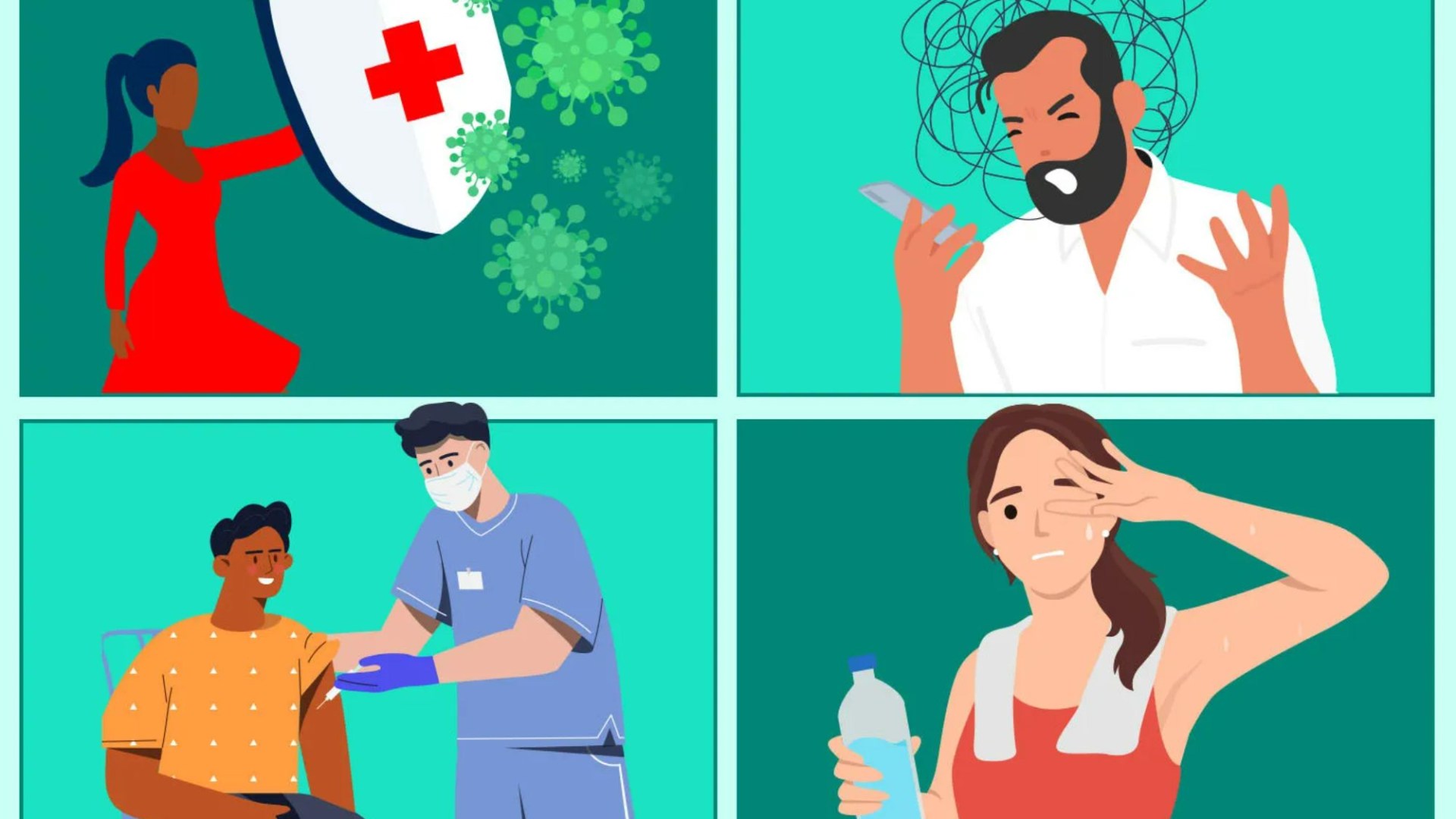WE all have our tips and tricks for dealing with flu and colds.
You might a have trusty over-the-counter drug that sorts you out every time or you might down ginger shots in hope of preventing infections in the first place.
2

2
But some of your go-to remedies might be more placebo than actual treatment, according to Dr Vikram Murthy.
The NHS GP and co-founder of Murthy Health clinic on Harley Street shared some persistent misconceptions about cold and flu that you might be convinced of – from ‘sweating out’ a cold by hitting the gym, to loading up on vitamin C and boosting your immunity with pills.
Dr Murthy debunked six myths and shared science-backed ways to stay well this cold and flu season.
Myth 1: There’s no such thing as ‘boosting’ your immunity
According to Dr Murthy, this is incorrect.
But guzzling ginger shots or supplements isn’t necessarily the best way to equip your immune system against viruses.
In fact, one of the easiest ways to make your body’s natural defence system is in tip top shape is in fact through making sure you’re up to date with your jabs.
“You can boost your immune system by having immunisations, which introduce a small amount of the virus into the body to produce antibodies, helping to reduce and prevent a full infection,” Dr Murthy said.
What you eat can help boost your immune system too, the GP went on.
“Nutrients like vitamins A, B, C, D, folate, iron, selenium, and zinc also play a role in supporting immunity.
“Eating fruits and vegetables, especially greens and root vegetables high in beta-carotene, will also help.
“Nuts, seeds, and pulses are great too. Probiotics can improve gut bacteria, which helps with immunity.”
Myth 2: Stress doesn’t impact on the immune system
Sniffles or a bout of the flu is the last thing you want to deal with when you’re stressed.
But long term stress can take an effect on your effect your ability to fight the infections off, according to Dr Murthy.
“When you’re stressed, your body produces a hormone called cortisol,” the GP said.
“In short bursts, cortisol can be beneficial for immunity, but if stress continues for long periods, this hormone causes inflammation in the body.
“As a result, your immune system becomes less effective, making you more prone to infections.”
Myth 3: You can ‘sweat out’ the flu
The idea behind sweating out a cold or flu is that you use heat, exercise or extra clothes and layers to make the infection go away faster.
“There’s no evidence that intense exercise or sitting in a sauna can “sweat out” the flu,” Dr Murthy stated.
“While it might make you feel temporarily better, it won’t shorten the flu.
“The body typically takes seven to 10 days to fight off flu symptoms.”
Myth 4: You don’t need a yearly flu jab
This myth is incorrect.
You might assume that your immunity against the flu will hold if you got a flu jab last year.
But Dr Murthy stressed that “the flu virus is constantly mutating”.
“Each year, the vaccine is updated to cover the most likely strains of the virus,” the GP said.
“Therefore, getting the flu vaccine annually helps boost your body’s immune response.”
Which cold and flu remedies actually work?

Sun Health reporter Isabel Shaw put 9 well-known cold and flu remedies when she was struck with a lurgy.
Over the course of a week, she tried products targeted all symptoms associated with cold and flu, as well as treatments that only aimed to get rid of specific issues.
These included:
- Hot honey and lemon
- Steam inhalation and Vicks Vaporub
- Echinacea
- Chicken soup
- A spicy curry
- Beechams All in One Oral Solution
- Strepsils
- Lemsip Max
- Sudafed Blocked Nose Spray
She took into account pain reduction, and how quickly and for how long they worked.
Read her full verdicts here.
As with every year, certain groups are eligible for a free flu jab.
This includes:
- All children aged two and three
- All children in primary and all children in school Years seven to 11 in secondary school
- Children aged six months to 17 years with certain long-term health conditions
- Those aged six months to under 65 years in clinical risk group
- Pregnant women
- Those aged 65 years and over
- Unpaid carers
- Close contacts of immunocompromised individuals
- Frontline health and adult social care staff
If you qualify then you can get it free anywhere that offers it.
This can be at your doctor’s surgery as well as supermarket pharmacies like Asda and high street favourites like Boots.
If you’re not in the eligible groups entitled to a free vaccination listed above, you can pay for a flu jab at certain stores.
The NHS has urged Brits to top up their jabs ahead of a looming winter ‘tripledemic’.
Myth 5: Vitamin C can combat colds and flu
There’s certainly nothing wrong with making sure you’re consuming foods high in vitamin C.
According to the NHS, the vitamin can help protect your cells and keep them healthy, maintain healthy skin, blood vessels, bones and cartilage and even help with wound healing.
But, Dr Murthy said: “There is no evidence that high doses of vitamin C will prevent you from getting the flu or a cold.
“However, it does help boost your body’s immune response.”
Myth 6: Antibiotics treat viral infections
This is incorrect, according to the GP.
“Antibiotics only work on bacteria,” he explained.
“Since flu and colds are caused by viruses, antibiotics have no effect on them.”
If you are in need of medicine to ease your symptoms, common over-the-counter drugs like paracetamol or ibuprofen can ease aches or lower a temperature.
You can also opt for decongestant nasal sprays, drops or tablets to unblock your nose.




